Getting a fee waiver can be a crucial part of easing your financial burden, but what happens if your application gets denied? Many applicants face this disappointment, which can feel overwhelming and discouraging. Understanding the reasons behind the denial and knowing the next steps can empower you to move forward. Join us as we explore how to navigate this challenge and discover potential alternatives â you're not alone in this journey!
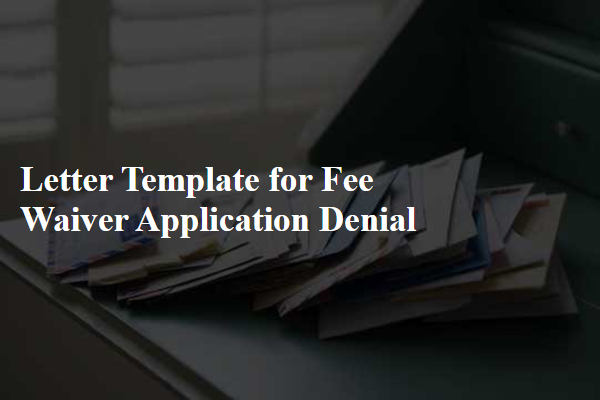
Clarity of Reason for Denial
In a fee waiver application denial, clarity in the reason for denial is vital for the applicant. Each reason provided should be specific and transparent, such as unmet financial eligibility criteria or incomplete documentation. Clear explanations help applicants understand the rationale behind decisions, thereby reducing confusion. This clarity may include references to specific policies or guidelines that were not fulfilled. For instance, if an applicant's income exceeds the designated threshold (like 200% of the federal poverty level), the denial letter should explicitly cite that criterion. Additionally, outlining the steps for reevaluation or appeal, along with deadlines and necessary documents, fosters an open dialogue and encourages applicants to rectify any issues identified in the application process.
Professional Tone and Language
Costly educational expenses often burden students, leading to requests for fee waivers. Institutions evaluate these applications thoroughly, often citing specific eligibility criteria. A denial notification typically outlines the reasons, such as insufficient financial need or failure to meet GPA benchmarks. Emotional considerations may arise, as students anticipate support during challenging times. The institution might stress adherence to institutional policies, emphasizing fairness and consistency across all applicants. This feedback is crucial for students to understand their standing and make alternative financial arrangements for future academic endeavors.
Reference to Application Information
Denial of fee waiver applications can often lead to disappointment, particularly in academic settings (such as universities or colleges) where financial burdens impact students. The governing body, such as an admissions office or financial aid department, evaluates applications based on specific criteria, including income thresholds and documentation of financial need. A typical outcome might involve a written notification, referencing important details such as the applicant's name, the unique application ID number, and the date of application submission. Legal standards or institutional policies may dictate the communication of denial, outlining reasons such as lack of sufficient financial documentation or failure to meet established income criteria (for example, an income exceeding 200% of the federal poverty level). In some institutions, applicants may be given a chance to appeal this decision within a specified timeframe, typically involving the submission of additional documentation or clarification of financial circumstances.
Offer of Alternatives or Next Steps
Fee waivers, often necessary for students facing financial hardship, can sometimes be denied based on specific criteria outlined by educational institutions. Common alternatives for those affected include applying for scholarships, seeking work-study opportunities, or requesting a payment plan. Many schools offer financial aid workshops or counseling sessions to guide students in exploring these options. Additionally, contacting the financial aid office directly can provide a clearer understanding of eligibility requirements for future applications. It is essential to maintain communication with relevant departments to stay informed about any changes in policies or newly available resources.
Contact Information for Further Assistance
In instances where fee waiver applications are denied, applicants may seek further assistance through dedicated contact channels, such as the Financial Aid Office at the specific educational institution. This office typically provides resources and support to help clarify the reasons for denial and explore potential alternative options. For example, applicants can reach out via email to the aid department's official address, often found on the university's website, or call the provided phone number for personalized guidance. Additionally, institutions may offer office hours for in-person consultations, allowing applicants to discuss their unique circumstances and receive advice on the next steps in their financial aid journey. Using these resources can facilitate a better understanding of policies and procedures related to fee waivers.
Letter Template For Fee Waiver Application Denial Samples
Letter template of fee waiver application denial due to incomplete documentation
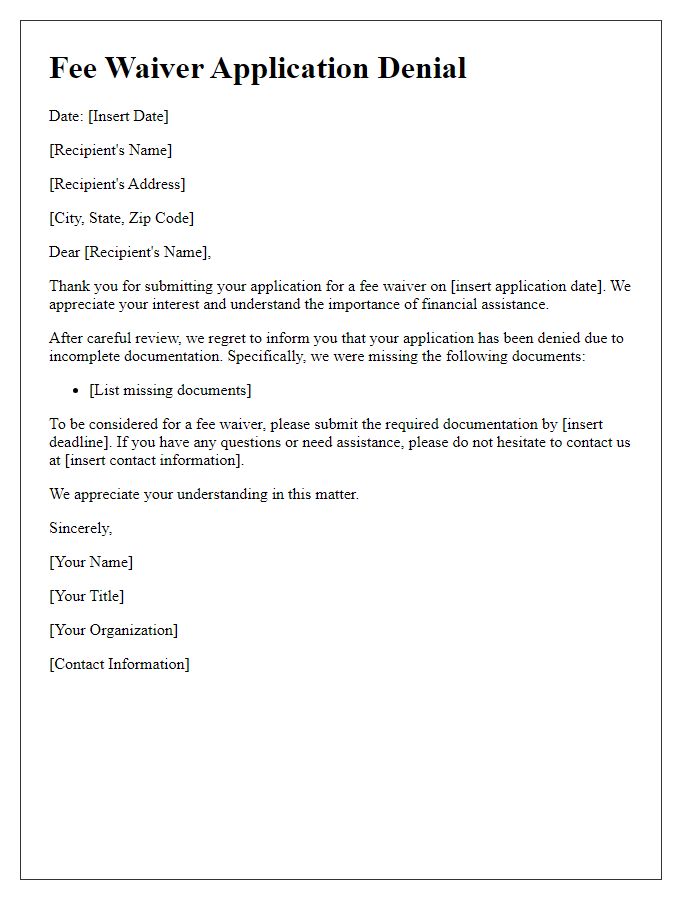
Letter template of fee waiver application denial based on income criteria
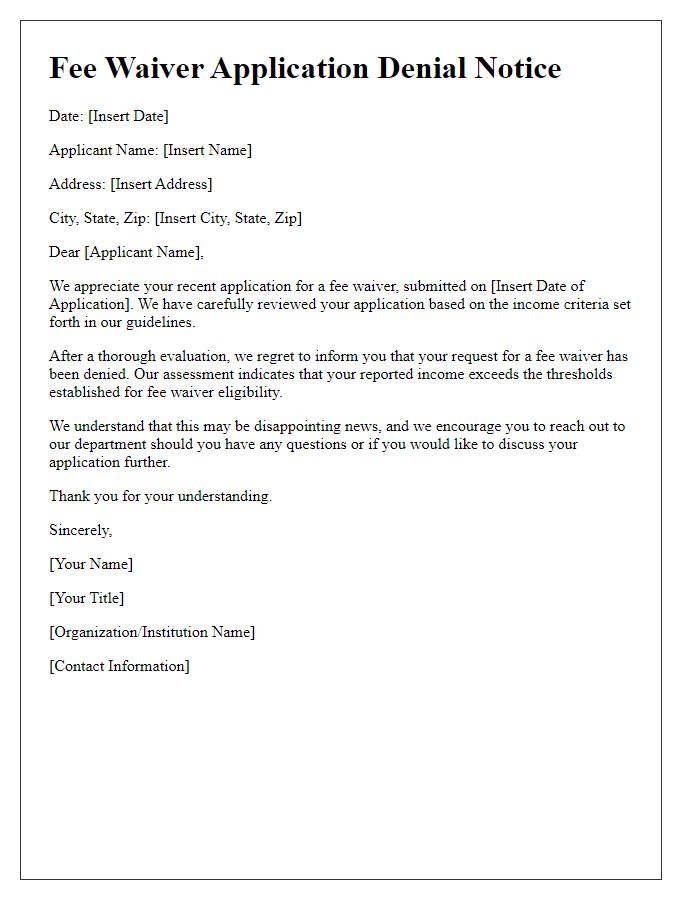
Letter template of fee waiver application denial for lacking eligibility
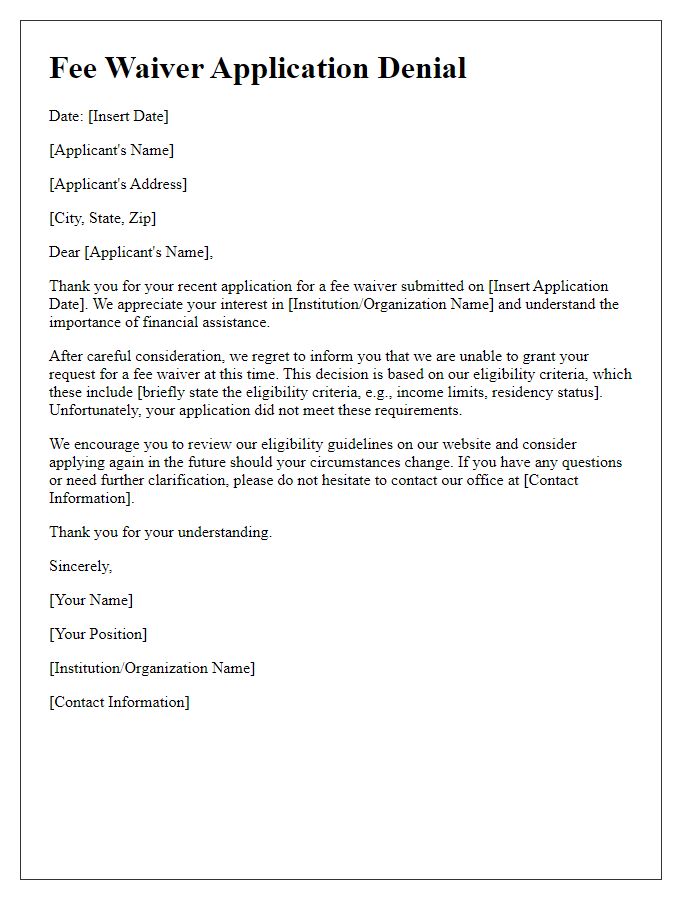
Letter template of fee waiver application denial citing policy restrictions
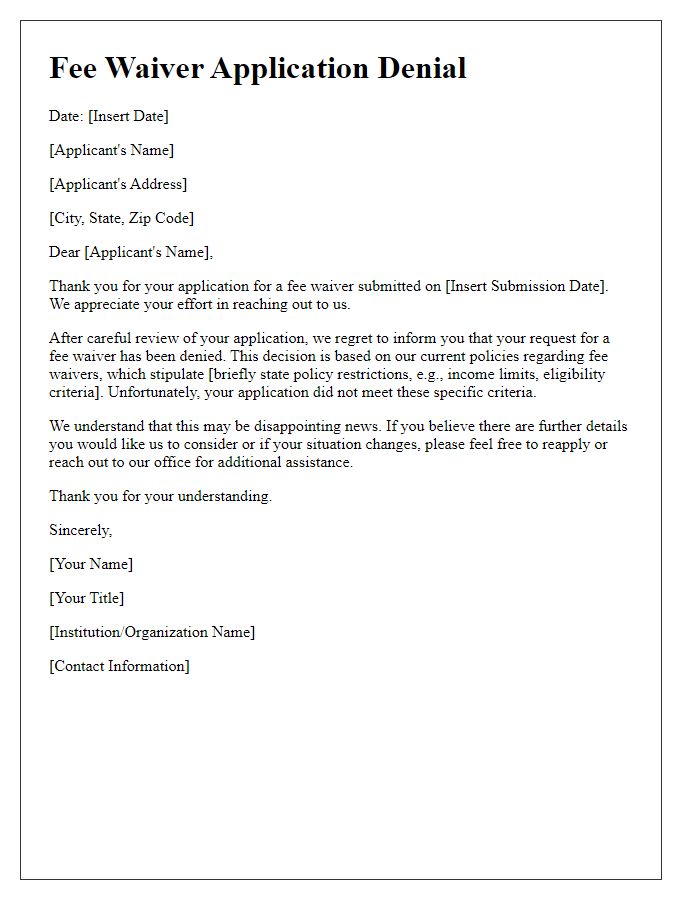
Letter template of fee waiver application denial regarding previous approvals
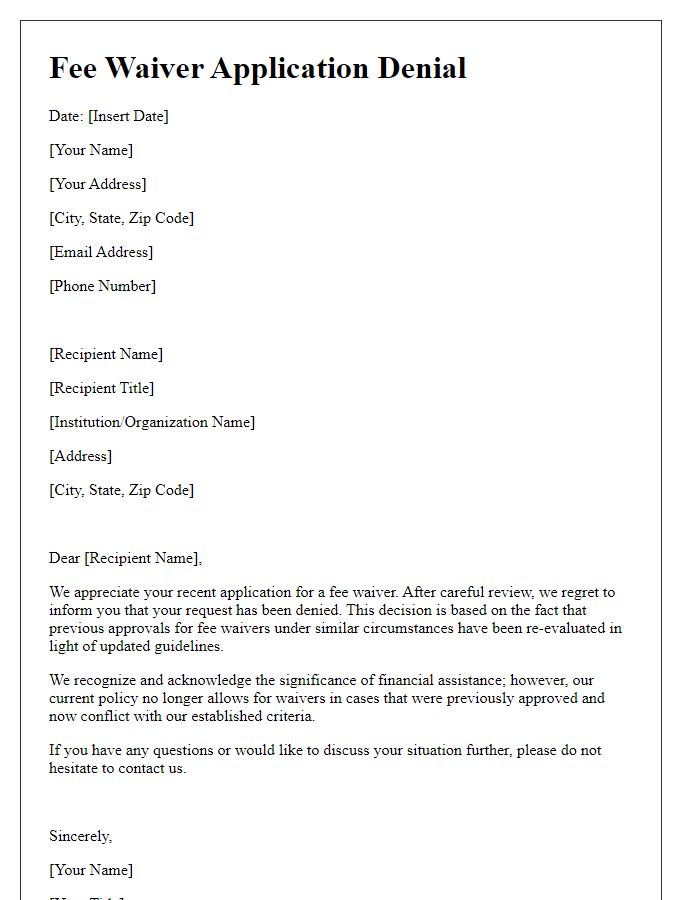
Letter template of fee waiver application denial influenced by asset evaluation
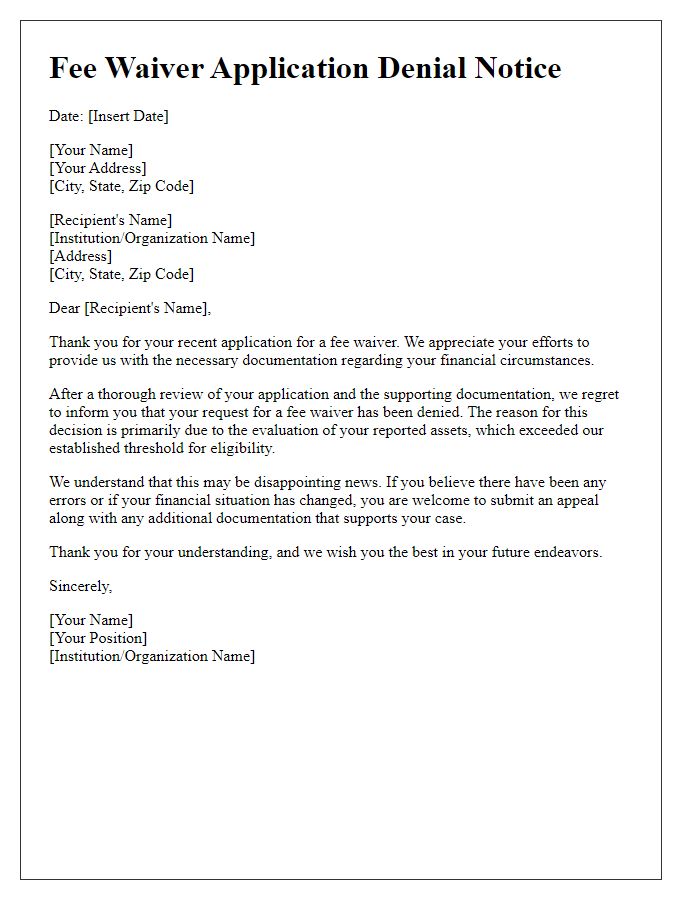
Letter template of fee waiver application denial due to residency issues
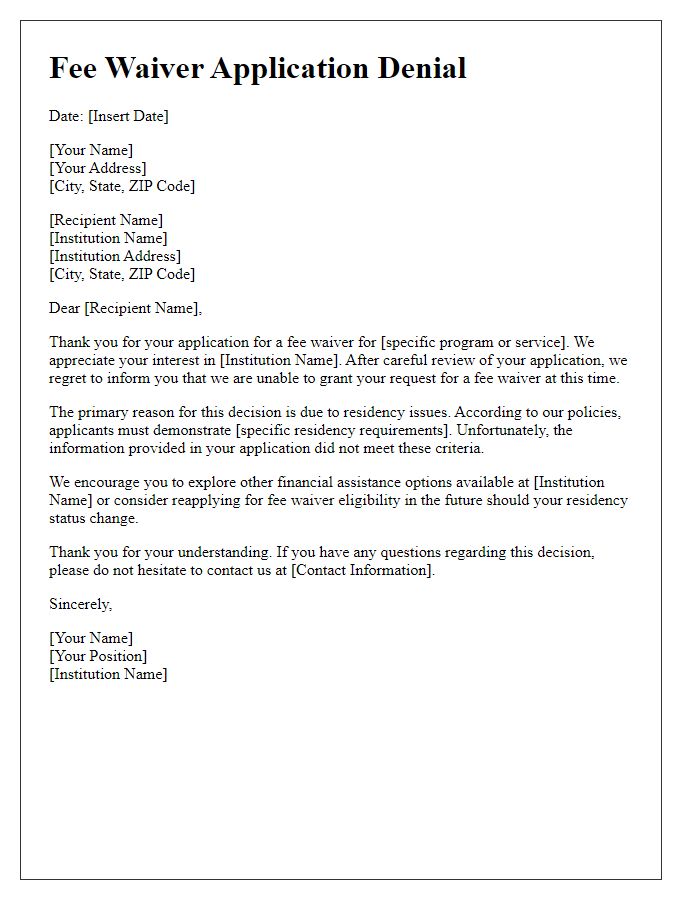

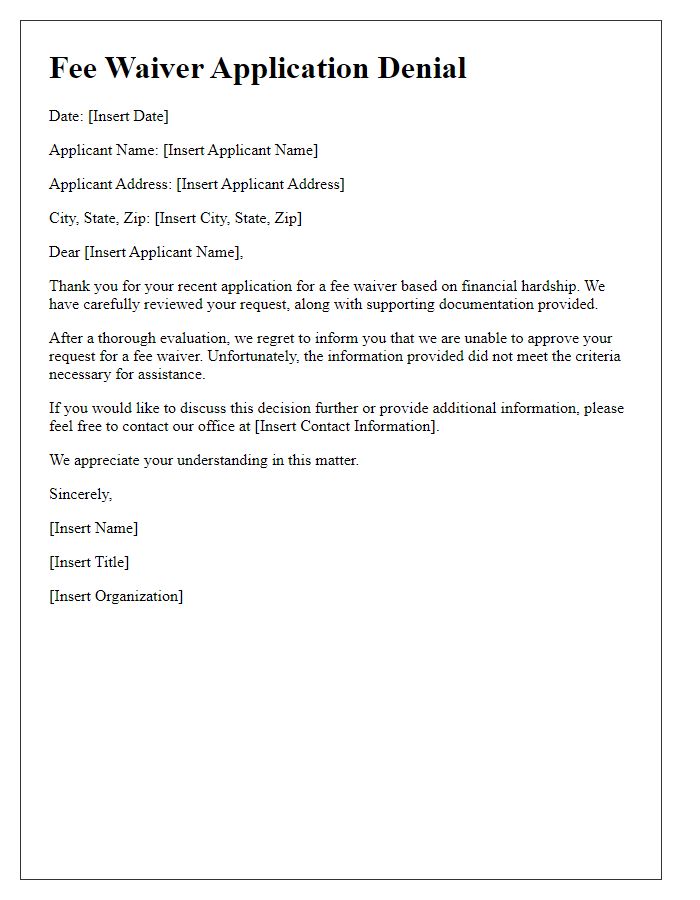
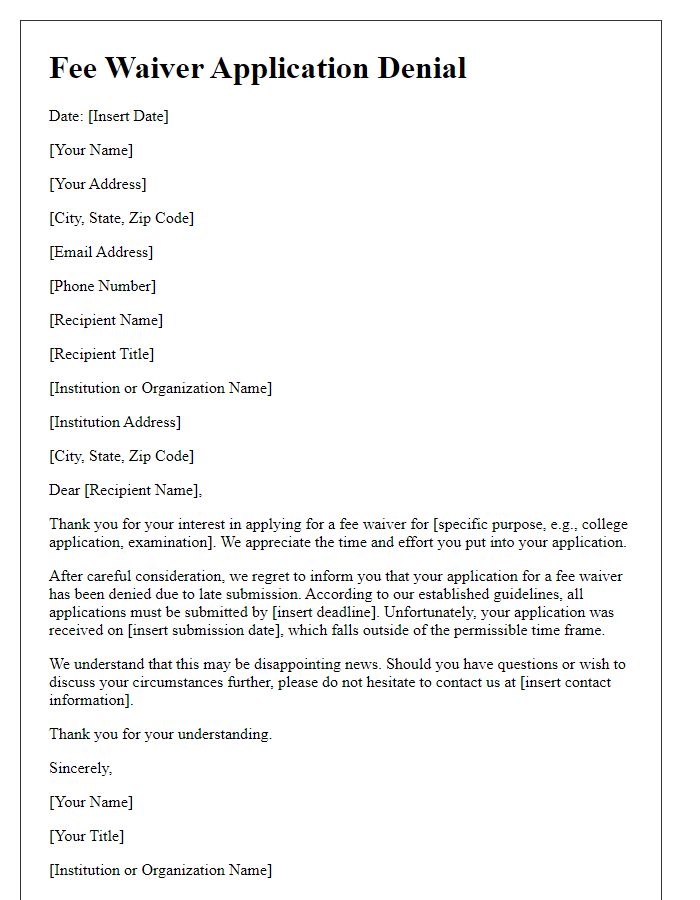
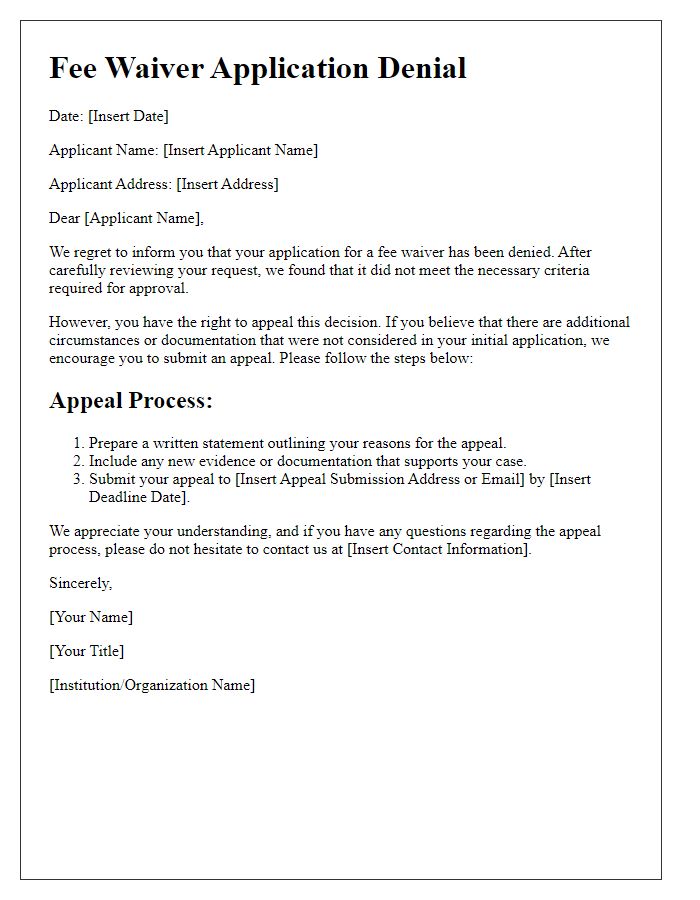


Comments